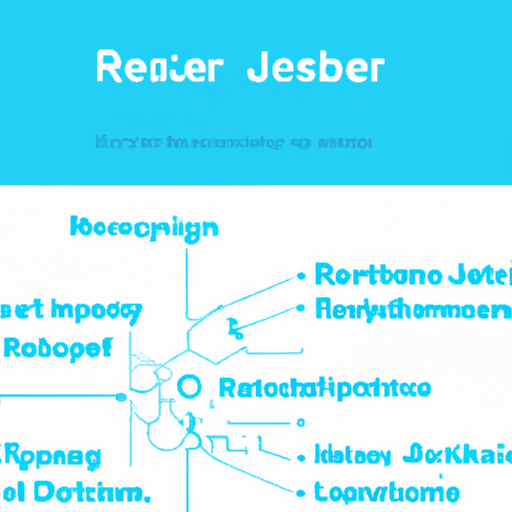Introduction:
In today’s ever-evolving digital landscape, the demand for talented software developers continues to grow at an unprecedented rate. Among the sought-after skills in the industry, React JS development stands out as a widely adopted framework that has revolutionized web development. With its efficient performance, flexibility, and reusability, React JS has become a go-to choice for designing innovative user interfaces. As React JS gains prominence, so does the need for skilled React JS developers. In this article, we delve into the job description of a React JS developer, exploring the key competencies, roles, and responsibilities that define this dynamic profession. Whether you are an aspiring developer seeking insights into the field or a recruitment specialist looking to hire top talent, this article will provide valuable insights into the world of React JS developers.
Table of Contents
- Introduction: Understanding the Role of a React.js Developer
- Key Responsibilities of a React.js Developer
- Technical Skills and Expertise Required for the Job
- Knowledge of React.js Framework and its Applications
- Collaboration and Teamwork in a React.js Development Environment
- Best Practices for Building Efficient and Scalable React.js Applications
- Effective Problem-solving and Troubleshooting for React.js Developers
- Continuous Learning and Keeping Up with React.js Trends
- Conclusion: Keys to Success as a React.js Developer
- In Summary

Introduction: Understanding the Role of a React.js Developer
In the fast-paced world of web development, the role of a React.js developer has become increasingly crucial. React.js, a popular JavaScript library, is widely used for building user interfaces for web applications. As a React.js developer, your primary responsibility is to develop and maintain efficient and reusable code for these front-end applications. This includes collaborating with designers and back-end developers to translate UI/UX design wireframes into working code.
To thrive in this role, a strong understanding of React.js fundamentals is essential. This entails having a deep knowledge of components, state management, and virtual DOM. As a React.js developer, you should also possess a solid understanding of HTML, CSS, and JavaScript. Proficiency in handling asynchronous operations using libraries like Axios or Fetch is a plus. Additionally, experience with modern front-end build pipelines and tools, such as Webpack and Babel, will contribute to your success in this position.
In a constantly evolving tech landscape, a React.js developer must stay updated with the latest industry trends and best practices. Familiarity with the React ecosystem and its associated libraries, such as Redux or Next.js, will equip you with the necessary skills to develop scalable and performant applications. Problem-solving abilities and attention to detail are critical traits as you will be responsible for debugging and troubleshooting issues that may arise. As a React.js developer, you will play an integral role in delivering seamless user experiences and bringing designs to life.

Key Responsibilities of a React.js Developer
React.js has become one of the most popular JavaScript frameworks in recent years, and as a React.js developer, you will play a crucial role in building and maintaining high-quality web applications. Your primary responsibility is to develop user interface components and implement them following well-known React.js workflows. These components should be reusable, efficient, and easy to maintain.
Alongside creating user interface components, you will also be responsible for collaborating with the designers and back-end developers to bridge the gap between graphical design and technical implementation. This involves working closely to translate the design wireframes and mock-ups into code that not only looks visually appealing but also ensures optimal performance and responsiveness. You will need to have a strong understanding of HTML, CSS, and JavaScript to effectively handle this aspect of your role.
Furthermore, as a React.js developer, you will be expected to write clean, concise, and scalable code that adheres to industry best practices. This includes using state management libraries such as Redux or MobX, as well as implementing unit tests using testing frameworks like Jest or Enzyme. Collaborating closely with the QA team to identify and fix any bugs or performance issues that may arise is also a vital part of your responsibility.
Technical Skills and Expertise Required for the Job
The ideal candidate for the React js developer position should possess a strong set of technical skills and expertise to excel in this role. This includes a deep understanding of web development principles, proficient knowledge of React.js and its ecosystem, along with proficiency in front-end technologies such as HTML, CSS, and JavaScript.
In addition to fundamental web development skills, candidates should have experience with various libraries and frameworks such as Redux, Next.js, and GraphQL. Knowledge of server-side rendering (SSR) and familiarity with testing tools like Jest or Enzyme are highly desired. Attention to detail, problem-solving abilities, and a passion for crafting efficient and maintainable code are essential traits for success in this position.
- Excellent proficiency in React.js and its ecosystem including React Hooks and Context API
- Strong understanding of HTML, CSS, and JavaScript
- Experience with Redux for state management and familiarity with Next.js and GraphQL
- Knowledge of server-side rendering (SSR) and familiarity with testing tools like Jest or Enzyme
Knowledge of React.js Framework and its Applications
React.js is a widely adopted and powerful framework that is revolutionizing web development. As a React.js developer, having a deep understanding and knowledge of this framework is essential. With its component-based architecture and virtual DOM, React.js enables developers to efficiently build interactive and seamless user interfaces for web applications.
One of the key strengths of React.js is its ability to handle complex UI updates with minimal performance impact. By leveraging its efficient rendering algorithm, React.js ensures that only the necessary components are updated, resulting in faster and smoother user experiences. Additionally, React.js offers a rich ecosystem of libraries and tools that simplify development tasks, allowing developers to focus on building robust and scalable applications. Whether it’s creating responsive user interfaces or managing state and data flows, React.js provides a flexible and efficient solution for a wide range of application requirements. Being familiar with React.js not only opens up exciting career opportunities but also equips developers with the skills to excel in the rapidly evolving field of web development.
Collaboration and Teamwork in a React.js Development Environment
In a fast-paced React.js development environment, collaboration and teamwork are key factors for success. When working on a React.js project, developers are often required to collaborate with other team members, including designers, product managers, and backend developers, to ensure the seamless integration of various components. Effective communication and collaboration can significantly enhance productivity and result in high-quality code that meets the project’s objectives.
To promote effective collaboration, React.js developers must possess strong interpersonal skills and be able to work well in a team setting. They should actively participate in team discussions, brainstorming sessions, and code reviews, providing constructive feedback and suggestions to improve the overall development process. By actively engaging in discussions, React.js developers can contribute their expertise, share insights, and leverage the diverse skill sets of their team members to solve complex problems and deliver innovative solutions.
Moreover, React.js developers should embrace agile methodologies and adopt collaborative tools and platforms, such as Git and Jira, to enhance their teamwork abilities. These tools facilitate version control, issue tracking, and seamless collaboration between team members, ensuring that project progress is transparent and easily traceable. By leveraging these tools and establishing a collaborative work environment, React.js developers can streamline the development process, minimize errors, and foster efficient teamwork, ultimately leading to successful project outcomes.
Best Practices for Building Efficient and Scalable React.js Applications
In order to excel as a React.js developer and build exceptional, high-performing applications, it is crucial to adhere to best practices that promote efficiency and scalability. By following these guidelines, you can ensure that your code is well-organized, maintainable, and optimized to handle increasing complexity and user demands.
First and foremost, structuring your React components in a modular manner is key. Break down larger components into smaller, reusable ones, enhancing code reusability and making it easier to debug and maintain. Utilize the power of React’s composition model to create a hierarchy of components that can be combined to create complex user interfaces. Additionally, make sure to leverage React’s lifecycle methods effectively, using componentDidMount() and componentDidUpdate() to handle any necessary setup and cleanup tasks.
Next, optimize your React application by minimizing unnecessary re-renders. Use React.memo() or React.PureComponent to memoize and prevent unnecessary re-rendering of components that haven’t changed. Take advantage of React’s virtual DOM by employing key prop to efficiently update lists. Moreover, use React’s context API sparingly and judiciously, as context updates can trigger re-renders across a large portion of your application. Finally, implement code splitting to dynamically load only the necessary parts of your application, reducing the initial load time and improving performance.
Effective Problem-solving and Troubleshooting for React.js Developers
React.js is a powerful and widely used JavaScript library for building user interfaces. As a React.js developer, problem-solving and troubleshooting skills are essential to mastering this framework and ensuring smooth development processes. Here are some effective techniques that can help React.js developers overcome common challenges and debug their code efficiently:
1. Thoroughly examine error messages: When encountering an error, don’t panic. Instead, carefully read through the error message displayed in the console. It often provides valuable information about the issue at hand, such as the specific component or function where the error occurred. Make note of the line number and the nature of the error, which will guide your troubleshooting efforts.
2. Break down complex problems into smaller parts: React.js applications can become complex, especially when dealing with large-scale projects. To tackle complex issues, break them down into smaller, more manageable chunks. By isolating the problem and testing each component separately, you can locate the root cause more effectively. This approach also helps in identifying specific areas of code that need adjustment or improvement.
3. Utilize debugging tools: React.js comes with beneficial debugging tools that can assist developers in identifying and resolving issues quickly. One of the most widely used tools is React DevTools, a browser extension that enables developers to inspect React component hierarchies, examine component props and state, and track performance. Additionally, using the browser’s built-in developer tools like Chrome DevTools can provide significant insights into the behavior of your React applications.
4. Seek help from the React.js community: The React.js community is vast and supportive, offering a wealth of resources for developers facing challenges. Online forums, open-source libraries, and social media groups provide platforms for troubleshooting discussions, where developers can seek advice and guidance from fellow React enthusiasts. Engaging with the community not only helps in finding solutions but also cultivates professional connections and enhances your understanding of React.js best practices.
By implementing these problem-solving and troubleshooting strategies, React.js developers can enhance their skills and become adept at resolving complex issues efficiently. Remember, mastering problem-solving techniques is an ongoing process that requires constant practice and experimentation. With each challenge overcome, developers will grow more confident in their ability to create robust and scalable React.js applications.
Continuous Learning and Keeping Up with React.js Trends
One of the key responsibilities of a React.js developer is to stay updated with the latest trends and advancements in this dynamic framework. As React.js continues to evolve, it is crucial for developers to embrace continuous learning and keep up with the ever-changing landscape. By staying updated, developers can ensure that they are using the most efficient and effective techniques to build robust and scalable applications.
There are several ways in which React.js developers can stay on top of the latest trends. First and foremost, attending conferences and workshops dedicated to React.js can provide valuable insights into emerging patterns and best practices. Additionally, reading relevant books, articles, and blogs written by industry experts can help developers gain a deeper understanding of the framework’s latest features and enhancements. Engaging in online communities and forums also allows developers to discuss and exchange ideas with fellow React.js enthusiasts, further fostering their knowledge and skills. By actively seeking out these learning opportunities and adapting to new trends, React.js developers can ensure they stay ahead in a highly competitive job market.
Conclusion: Keys to Success as a React.js Developer
In conclusion, mastering the keys to success as a React.js developer requires a combination of technical expertise, continuous learning, and effective communication. First and foremost, staying up-to-date with the latest React.js features and best practices is crucial. This can be achieved by regularly exploring official documentation, attending conferences, participating in online forums, and joining relevant communities. Additionally, having a deep understanding of JavaScript fundamentals and being well-versed in HTML and CSS will strengthen your React.js development skills.
Furthermore, honing your problem-solving abilities and familiarizing yourself with popular libraries and frameworks that complement React.js, such as Redux or Next.js, can greatly enhance your development process. It is essential to develop efficient coding habits, focusing on clean and modular code, adhering to industry standards, and implementing good design patterns. Leveraging Git version control and utilizing tools like npm or yarn for package management will contribute to a streamlined and collaborative development workflow.
Lastly, as a React.js developer, effective communication is key. Collaborating with designers, product managers, and other developers requires strong interpersonal skills and efficient teamwork. Being able to effectively communicate technical challenges, articulate ideas, and provide constructive feedback will not only boost your productivity but also foster a positive work environment. In addition, regularly seeking feedback from peers and actively participating in code reviews will help you continuously improve your coding practices and gain valuable insights from others in the industry. Overall, by following these keys to success, you can pave the way for a successful career as a React.js developer.
In Summary
In conclusion, the role of a React JS Developer encompasses a range of essential skills and responsibilities that contribute to the successful development of dynamic and efficient web applications. With expertise in React JS and an understanding of front-end development principles, React JS Developers are proficient in creating intuitive user interfaces and collaborating with cross-functional teams. Their role extends beyond coding, as they are also responsible for project planning, problem-solving, and keeping up-to-date with industry trends. This article has outlined the core job description of a React JS Developer, shedding light on the qualifications, technical skills, and desirable traits that make a valuable addition to any development team. Whether you are a seasoned developer looking for new opportunities or an aspiring professional seeking a career change, understanding the job requirements and expectations of a React JS Developer will undoubtedly set you on the path to success.
